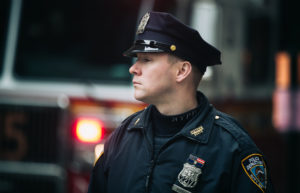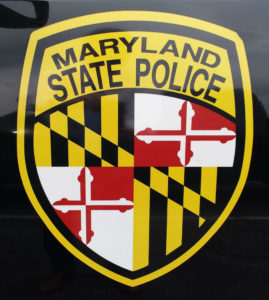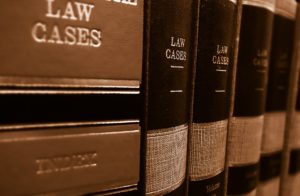When most patients undergo a routine surgery, are admitted to a hospital or visit a doctor’s office there are positive outcomes and patients leave healthy and whole. Unfortunately, not all medical care has positive outcomes, and sometimes medical care can go terribly wrong.
According to the Centers for Disease Control and Prevention 2015 survey, 86 percent of adult Americans, and 93 percent of children had some contact with a health professional during the year. In 2011 alone, there were more than 990 million physician office visits and nearly 126 million hospital visits.
Doctors and nurses have demanding caseloads, work long hours and often have a limited time to spend with any one patient. Unfortunately, due to stresses inherent work doctors, nurses and other health professionals do make mistakes, sometimes with deadly consequences.
Last year researchers at Johns Hopkins Medical Center released the results of a study which found that an estimated 250,000 Americans die each year as the result of medical errors. This places medical error deaths as the third leading cause of death in the United States surpassed only by cancer and heart disease, which each claimed about 600,000 lives in 2014. According to the study, medical error deaths ranked ahead of respiratory disease, by more than 100,000 deaths.
WHAT IS MEDICAL MALPRACTICE?

The National Center for Biotechnology Information, U.S. National Library of Medicine defines medical malpractice, “as any act or omission by a physician during treatment of a patient that deviates from accepted norms of practice in the medical community and causes an injury to the patient.”
Medical malpractice is not limited to the acts or omissions of doctors. Any medical professional can commit acts that fall under the umbrella of medical malpractice. Nurses, dentists, therapists, technicians and other healthcare providers are all medical professionals that can potentially cause harm during medical care.
Medical professionals are not the only defendants in medical malpractice suits. Hospitals, clinics, and doctor’s offices are responsible the training, education, supervision, and resources provided to its employees. Supervision of a medical facility’s employees can significantly influence the care you receive, and in some cases, medical facilities do not provide their medical professionals with the resources necessary to effectively treat and manage their patients.
When doctors and nurses do not receive adequate training, it can lead to inadequate care. Therefore, your medical malpractice attorney may decide to also include a medical facility or professional association as defendants in your case.
There are many typical medical malpractice cases including surgical errors, birth traumas, medical misdiagnosis, anesthesia errors, unreasonable delay in treating a diagnosed condition, neglect, or failure to obtain informed consent from a patient before treatment.
WHEN SHOULD YOU CONTACT A MEDICAL MALPRACTICE LAWYER?
If you think you may have been the victim of a medical error, you should not hesitate to contact a medical malpractice attorney. In many cases there is a strict statute of limitations on medical malpractice suits, so time is of the essence and you should reach out to an attorney before it’s too late.
If you have suffered and injured as the result of medical negligence, you should schedule an initial consultation with a medical malpractice attorney.
If an attorney believes there is substantial evidence of medical malpractice he or she may bring a lawsuit against the negligent parties, including physicians, doctor’s groups, insurance companies, managed care organizations, hospitals, medical corporations, and clinics.
Although you may feel you have suffered injury as the result of medical professional negligence, it takes skilled and knowledgeable medical malpractice lawyers and experts to review the circumstance surrounding your case to determine whether a medical treatment, misdiagnosis, or medical treatment is actual malpractice.
WHERE ARE MEDICAL MALPRACTICE SUITS FILED?
In the United States, medical malpractice law is under the authority of the individual states, so it is essential that if your case will be brought to a Maryland state or Baltimore City circuit court that you hire an attorney admitted to the bar in that jurisdiction. If your injury took place in a Baltimore hospital, you need to find an attorney who can practice in Baltimore. Your attorney will determine to correct court to file your lawsuit after he or she has discussed your case with you.
Many armed service member, veterans and the family members of those serving in the military receive care at federal facilities, some malpractice claims may involve the federal government. In those cases, your attorney may file your lawsuit in a federal district court. Your suit may also be submitted to a federal court if there is a violation of fundamental constitutional rights alleged in the negligent conduct.
WHAT IS NEGLIGENCE AND WHAT ARE THE ELEMENTS OF MEDICAL MALPRACTICE?

In medical malpractice cases, negligence is the predominant theory of liability. According to an NCBI article, “medical malpractice is a specific subset of tort law that deals with professional negligence…‘negligence’ is generally defined as conduct that falls short of a standard; the most commonly used standard in tort law is that of a so-called ‘reasonable person.'”
Your medical malpractice attorney must establish the following elements for your case to move forward:
duty,
breach of the standard of care,
causation, and
damage for your case for you to recover damages for negligent malpractice.
The element of duty is based on the existence of a doctor-patient relationship. Your attorney will have to show that the medical professional in your case had indeed entered into a professional relationship with you before you can move forward with your case.
Next, your attorney will have to show that the medical professional violated the applicable standard of care. Your attorney will establish the violation of the standard of care through the discovery process as he or she gathers evidence and utilizes expert witness testimony.
The third element of your medical malpractice attorney will need to show causation, which merely means there is a causal connection between the breach of care and the injury you suffered.
Lastly, your attorney will need to show that you suffered actual damages as a result of the medical professional’s deviation from the standard of care.
WHAT IS A MEDICAL MALPRACTICE ATTORNEY AND WHAT WILL HE OR SHE DO IF HE DECIDES TO REPRESENT ME?
The duties of an attorney can take on many forms. Civil litigators are attorneys who provide legal representation to plaintiffs alleging physical or psychological injury as a result of the negligent or careless acts of another person, entity or organization.
A medical malpractice lawyer is a civil litigator who performs many of the day-to-day tasks of a personal injury lawyer.
As your attorney moves forward with your case, he or she will work with medical experts to develop a theory for your case. The experts will produce reports used as evidence in your case.
WHAT ARE DEPOSITIONS FOR A MEDICAL MALPRACTICE CLAIM?

Next, your attorney will take depositions, which is the questioning of a witness under oath outside of a courtroom. Your attorney will conduct depositions from you and any medical experts, medical personnel and other third parties connected to your case.
As part of the discovery process, your attorney will gather and analyzing medical records and other documents that contain facts related to your case.
Of course, you will be an integral part of the discovery process and your attorney will most likely set up independent medical examinations (IMEs) to obtain an objective evaluation of the condition of the injured plaintiff.
Generally, as part of their education, medical malpractice attorneys perform medical research relating to the medical conditions that occur as the result of medical malpractice.
Your attorney may also work with legal nurse consultants, who are professionals who offer advice to attorneys, paralegals and legal experts regarding medically-related issues of the law.
Because medical malpractice attorney often specializes in specific types of medical malpractice cases such as birth injuries, surgery mistakes, or dental malpractice, it is critical that you thoroughly research medical malpractice attorney’s before you decide who should represent you in your case.
HOW DO I CHOOSE THE RIGHT MEDICAL MALPRACTICE ATTORNEY?

Hiring the right attorney to represent you can be a daunting task, but with this handy checklist, you can be better prepared to ask questions that will help you make your final decision.
First, you need to ask what experience does the attorney have? How long have they been practicing law? Has the attorney handled medical malpractice cases before?
If so what were the results? What are online reviews of the attorney? Has he or she won any awards or been recognized by a professional organization like Best Lawyers, Super Lawyers or Martindale-Hubbell?
Many medical malpractice attorneys obtain board certification from an organization such as the American Board of Professional Liability Attorneys. To earn board certification, an attorney must exceed rigorous requirements in areas such as experience, ethics, education, examination and excellence in professional liability law.
WHAT KIND OF RESULTS HAS THE ATTORNEY ACHIEVED?
It may be intimidating to ask these types of questions of an attorney, but you have to remember they are working for you. And although all attorneys have to go through law school, not all attorneys are created equal. If your attorney is not will and forthright when you ask these questions, find an attorney that is willing to answer your questions.
Make sure to ask the attorney, what was the result of his or her most recent medical malpractice suit? Has the attorney ever taken a case to trial? If so, what was the result? What are some of the awards the attorney has won in previous cases?
WHAT OTHER RESOURCES DOES THE ATTORNEY HAVE?
Make sure to ask if the attorney is in individual practice or part of firm? How many attorneys work at the firm and will they assist in the case? Does your attorney have access to expert witnesses and medical investigators?
HOW WILL YOUR CASE BE MANAGED?
Case management is crucial in any litigation. Local rules determine the timing of discovery, the filing of pleadings, and the taking of depositions, so it is critical you know the attorney will manage your case.
To do so make sure your attorney tells you whether he or she will be handling the case personally or will they refer the matter to another law firm? Will you be interacting with other lawyers, paralegals or staff at the firm?
Make sure to ask how often the attorney will update you on the progress of the case. Ask who will be the point of contact for your and how accessible will they be for you.
LEGAL FEES IN A MEDICAL MALPRACTICE SUIT
Lastly, ask about the bottom line.
Make sure your attorney informs you of the fee he or she collects for the services rendered.
Many times, medical malpractice attorneys work on a contingency, which is a fee arrangement, where the lawyer agrees to accept a fixed percentage (often one third) of the recovery, which is the amount finally paid to the client. If you win the case, the lawyer’s fee comes out of the money awarded to you. Often if a case goes to trial, the attorney receives a higher percentage, as much as 40 percent.
Make sure you take notes regarding the interviews conducted with attorneys so you can make an informed decision on the attorney you choose to represent you. This decision can have life-long consequences, so you’re your time and speak with several lawyers before making your decision.
HIRING AN ATTORNEY
After you have spoken with several attorneys make sure to research each candidate and read online reviews. Many websites such as www.bbb.org/Reviews/Lawyer, https://www.martindale.com/ratings-and-reviews/, and https://www.lawyers.com/ are all excellent resources for reviewing potential medical malpractice attorneys for your lawsuit.















